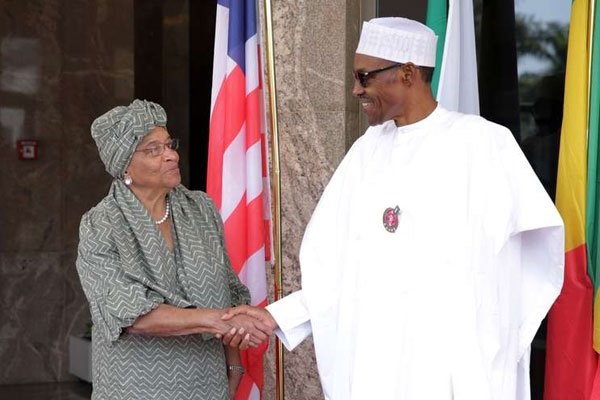African leaders up pressure as Yahya Jammeh faces isolation

West African leaders announced Monday they would return to The Gambia to try and persuade President Yahya Jammeh to step down, but said the use of force remains an option.
The mandate for Jammeh’s five-year term expires on January 18, after which president-elect Adama Barrow is supposed to take power.
But the strongman, in power for 22 years, has vowed to stay in office until a dispute over the election result is resolved, though he has become increasingly isolated at home and abroad.
Nigerian President Muhammadu Buhari will accompany Liberian counterpart Ellen Johnson Sirleaf and Ghana’s former president John Dramani Mahama to The Gambia to try and end the crisis.
RESPECT THE CONSTITUTION
They will impress upon Jammeh “the imperative to respect the constitution”, Nigeria’s foreign minister, Geoffrey Onyeama, told reporters in Abuja.
The same leaders met there with Senegalese President Macky Sall, he added.
There are worries in The Gambia over worsening security, a potential refugee crisis and a media crackdown that has taken several radio stations off air.
And while Onyeama said a peaceful transfer of power was preferable, force could be used. “Violence should be avoided but nothing is ruled out,” he said.
STALEMATE IN ELECTORAL DISPUTE
The regional leaders made a previous attempt at mediation with both sides in the electoral dispute in mid-December, a couple of weeks after the poll, but failed to make a breakthrough.
In Banjul, there were rumours of imminent defections from Jammeh’s government, while it was confirmed the leader had fired ambassadors to 12 nations, apparently for disloyalty.
All the envoys had expressed support for Barrow in late December, and asked Jammeh to step aside and respect the result of the December 1 vote, which delivered the opposition leader a narrow victory.
“I do not know why President Yahya Jammeh terminated their services, but I can tell you that these are the ambassadors that congratulated and endorsed President-elect Adama Barrow for his election victory,” a foreign ministry source told AFP on condition of anonymity.
JUDGE SHORTAGE?
Meanwhile it appeared increasingly clear there would not be the requisite number of judges Tuesday sitting for Jammeh’s Supreme Court case against the Independent Electoral Commission (IEC), where he is seeking to have the election result overturned.
Nigerian and Gambian legal experts told AFP that although five Nigerian judges and one from Sierra Leone had been invited to hear the case, none had responded.
President of the Nigerian Bar Association Abubakar Mahmoud said that regardless “the will of the people expressed in the December 1 election has to be respected.”
The Gambia relies on foreign nationals as judges due to a shortage of nationals with the requisite training and experience.
On Monday a member of staff at the court said “judges who were supposed to come on board Air Maroc did not show up. We were expecting judges from Nigeria and Sierra Leone.”
Jammeh and his political party have now lodged three separate legal complaints with the Supreme Court alleging manipulation of ballot counting by the IEC and intimidation of supporters.
QUICK RESOLUTION UNLIKELY
Gambian legal expert Aziz Bensouda said a quick resolution was unlikely and constitutionally Jammeh still had to step down by the end of his official term.
“In the absence of a court and the pure impossibility of the parties being served in time to appear and enter a response, it seems that an adjournment of the case will be the most likely outcome,” he said.
Jammeh’s own lawyer Edward Gomez told AFP earlier he did not know how many judges would appear on the day.
Chief Justice Emmanuel Fagbenle is the panel’s only sitting judge, as the Supreme Court has lain dormant since May 2015.
Several judges were fired after they commuted the death sentences of former military officers to life imprisonment.
Tension and uncertainty has gripped the Gambian capital, with the US embassy sending non-essential staff and family members out of the country, as well as urging citizens not to travel there.
A statement issued Monday by the US ambassador described Tuesday’s court case as “a potential flashpoint that could lead to civil unrest.”
AFP